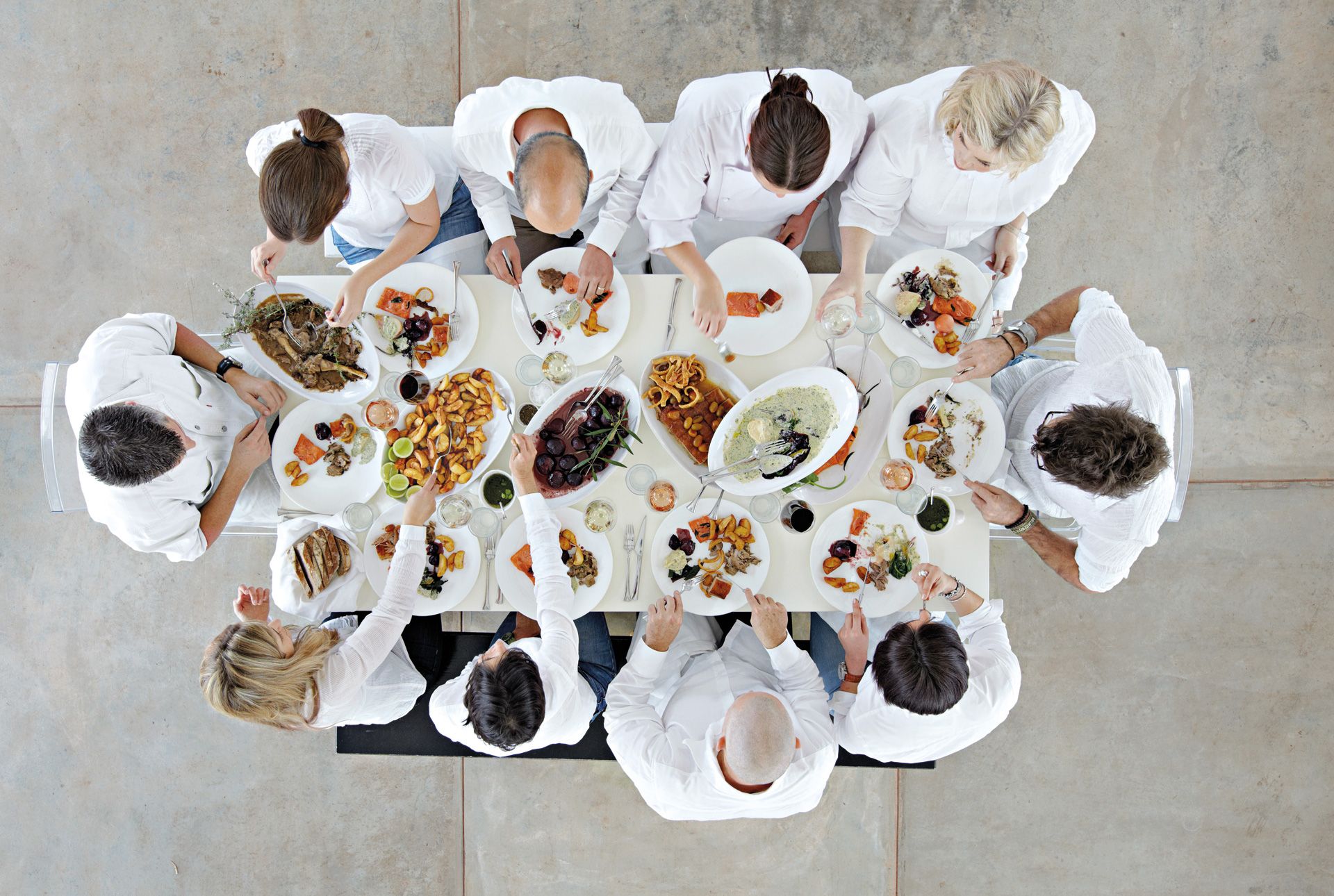Thought Cape Town was just about sunshine and beach life? We raise a glass to the gastronomic revolution transforming the Cape Winelands experience

In the not-too-distant past, the words “South African cuisine” conjured images of a boerewors roll, a bag of biltong and a packet of rusks. International visitors would lavish praise on the Cape Town beaches, the Stellenbosch wines, and the lowveld game viewing. But the food? Let’s just say it rarely made the list of what to write home about.
However, in the last few years, South Africa—more specifically, the Cape Peninsula—has been in the grip of a culinary revolution that’s forcing the rest of the world to bin its tired stereotypes. Down in the Cape, we’re seeing the potent mix of world-class chefs using ripe local produce to create menus that reflect the country’s multicultural past. And because the majority of them are based around Stellenbosch and Franschhoek, they also complement the ever-growing range of wines on offer.

The setting doesn’t hurt, either. Gabled Cape Dutch houses from the 17th century are nestled under soaring mountains, and above sweeping red and green valleys. They’re pretty much universally agreed to be the most striking winelands on the planet, but the local population is tired of being judged on looks alone, so they’re upping the creative ante as well.

That means the focus has shifted away from Cape Town, as tourists choose to split their holiday between cocktails and sunbathing in the glitzy beach city and the gastronomic delights of the nearby wine region. Connoisseurs are pouring in from around the world, packing their days with wine tastings and three-course meals. As the rand plummets in value, prices have become extremely affordable, with an immaculate six-course dinner paired with wine costing less than PHP 1,800 a person. It’s a blessing for your bank account, but what about your body? Unlike most culinary holidays, you probably won’t go home with a few extra notches on your belt. As the chefs and winemakers all stress, the emphasis is on fresh herbs, fresh vegetables, fresh fish, and fresh meat—washed down with wines produced with minimal interference.

"We have amazing produce, so we want to let it speak for itself rather than smother it in too many buttery sauces," says Margot Janse, the head chef of the Tasting Room at Le Quartier Français, often cited as the best restaurant in Africa and one of the most affordable on the San Pellegrino Top 100 Restaurants list. Her food is a celebration of local ingredients and dishes, such as salted farmed kabeljou (the kob fish, in Afrikaans) and confit suckling pig with fynbos jus, manage to be both comfortingly delicious and packed with unusual flavours.

Le Quartier Français is on Franschhoek’s winding Main Road; this pretty town of Cape Dutch houses, tin-roofed cottages, and blue-and-white French cafes avoids being overly quaint thanks to the rugged Huguenot mountains that form its imposing backdrop. Fittingly, for a place that means "French corner" in Afrikaans, it’s also at the epicentre of this gastronomic revolution. An hour’s drive from Cape Town, it is home to some of the most interesting winemakers and chefs on the continent—everyone in the area seems happily obsessed with where to buy the strongest cheese, the freshest baguettes, and the ripest avocados.

Further along Main Road is Foliage, the new venture by Chris Erasmus, a Margot Janse protégé who’s already receiving rave reviews for his imaginative take on traditional South African cuisine. His black truffle and biltong risotto and his ostrich and kidney pie are triumphs, and if you can manage more alcohol after a day of wine-tasting, the wine list is one of the best in the region. Fifteen minutes out of town, you’ll find Babylonstoren, an unfailingly delightful spot to spend the day—the beautiful grounds make all visitors immediately start wondering whether they should swap their city apartment for a house with a garden like this one, filled with ripe plum trees, banks of hydrangeas, and rippling streams. The restaurant, Babel, takes most of its produce from the garden, which means a few weeks later, you might find yourself daydreaming about something as simple as its flavourful green salad. "We start preparing your food long before you arrive," says Maranda Engelbrecht, the food director at Babylonstoren. "Ingredients are everything and here in the Cape, we have the best in the world." Indeed they do, and after two weeks of tender ostrich steaks, juicy tomatoes, rich cheese, and crunchy vegetables—all cooked with imagination, flair, and a pinch of exoticism—your palate might go on strike if you try to board that flight home.
Photos courtesy of Babylonstoren, Leeu Estates / Le Quartier Français and Waterkloof
